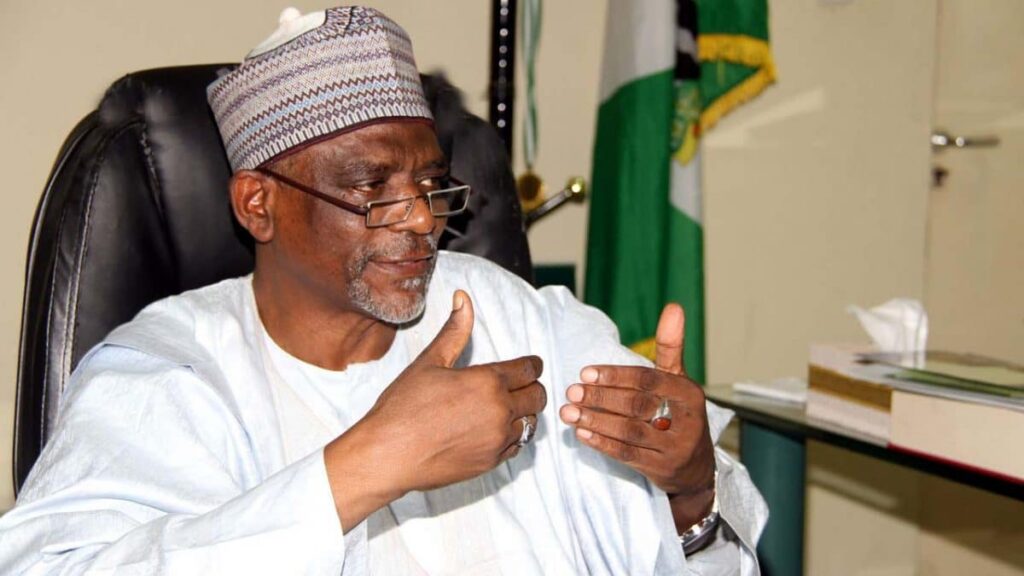Chidimma UCHEGBU
Nigeria’s Minister of Education, Adamu Adamu, has called on examination and assessment Agencies in the country to adopt ICT in tackling the menace of examination malpractices and build a multi-dimensional approach to address the menace.
The minister made the call in Lagos State while declaring open a one-day National Sensitization Workshop on Malpractice in Nigeria jointly organised by the National Examinations Council (NECO) and the National Assembly.
According to the minister, who was represented by the Registrar Joint Admissions and Matriculation Board (JAMB), Prof. Ishaq Oloyede, Nigeria is underdeveloped in tackling issues of examination malpractices hence the weaponing of exams to candidates is an unfair assessment.
“Examination malpractice is a major problem affecting the conduct of public exams in Nigeria and let me say that Nigeria is under development in tackling issues of malpractice in our exams.
“ICT is the way to go in curbing this menace. It has become most critical that we must adopt it and we must become creative in adopting ICT devices to protect the sanctity of our examinations across Nigeria”, he said.
The Permanent Secretary of the Federal Ministry of Education, Andrew Adejo, in his keynote address called on the National Assembly to enact laws for sanctions on consequent actions.
According to him, complexities arise following the loss of core values in Nigerian society, “because we have forgotten our value system, they have collapsed and until we fix this it may take a long time before the system recovers we should look at the ways of correcting our value system”.
He suggested that culprits of examination malpractices must be made to face the law and advocated for a more conducive learning environment.
Deputy Chairman Senate Committee on Education, Senator Akon Eyakenyi, said the National Assembly frowns at examination malpractice and it hopes to tackle it with a holistic mind.
“The Committees on Education (Basic and Secondary) is using this opportunity to appeal to stakeholders, particularly to the parents and teachers of the students to sensitize themselves to ensure the spirit of examination malpractice is thoroughly purged out from their lifestyle before sensitizing their children, wards or students as they are equally at fault by aiding and abetting these students”, he said.
Senator Eyakenyi said to effectively tackle examination malpractices, there is a need for operators to collaborate with professional associations that wield certain levels of influence on their members.
She called on the government to hold private school operators to account while further challenging stakeholders to rise to the task of speaking out and taking informed decisions when and where needs arise.
“The media community should particularly lend its support to this patriotic fight. It is also my thinking that monitoring and evaluation should be taken seriously across the board in the education sector. Supervision of both our learners and educators at all levels should be stepped up”, she added.
The Chairman House of Representatives Committee on Education (Basic and Secondary), Prof. Julius Ihonvbere, calls for collective responsibility to tackle problems of examination malpractices.
According to him, stakeholders must work together to produce results that will work for the betterment of the Nigerian education sector.
He acknowledged the efforts of JAMB in fighting malpractices in public examinations.
“Unless the nation addresses the issue of infraction in public exams the nation may not move forward it is a criminal offense but it is disappointing that children are no longer afraid because for their participation in examination malpractices there are no longer sanctions”, he said.
Earlier in his welcome address, NECO boss, Prof. Dantani Ibrahim Wushishi, noted that the major challenge facing the conduct of public examinations remains issues of examination malpractice.
Wushishi added that it is to find ways and means that can be adopted to curb the menace and re-orient the minds of the youths concerning the cankerworm.
“No doubt, examination malpractice has the tendency to discourage hard work among serious students, lowers educational standards, discredit certificates, and lead to the production of quacks, thereby affecting the manpower needs of the nation”, he said.
He called for collective responsibility to rid them of the bad habit of wanting to cut corners.
The Head of WAEC Nigeria, Patrick Areghan, represented by Dr. Amos Dani, also commended NECO for advancing assessment to a greater level.
He applauded the role of the National Assembly in tackling the examination malpractices menace.
Areghan disclosed that WAEC has already begun the deployment of technology in the fight against exam infractions.
“WAEC has developed a technology called IDP to detect collisions in the objectives segment of our exams. Other technologies are being currently developed to tackle malpractices in our essay papers”, he said.


